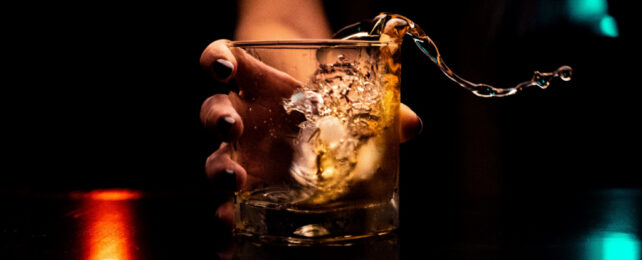The worst effects of alcohol go far beyond the last head-splitting, gut-wrenching hangover you had and would rather forget.
Dehydration is part of it, but consuming alcohol also inflames the intestines and leaves the body with a bunch of toxic byproducts it has to deal with – which over time can lead to serious health harms.
Aiming to alleviate the burden of alcoholism, a team of Chinese researchers has been trialing a modified probiotic supplement that they say can protect mice – and maybe one day humans – against the acute effects of consuming too much booze.
Given its widespread use, alcohol remains one of the leading contributors to death and disease worldwide, responsible for some 5 percent of yearly mortalities and roughly the same fraction of global burden of disease and injury.
"Alcohol intake has been shown to be associated with a variety of diseases, such as fatty liver, cirrhosis, cardiovascular and cerebrovascular diseases, and cancer," explains medical researcher Xiaoxiao Jiang of the Chinese Academy of Sciences and colleagues in their published paper.
"Therefore, the development of effective products to reduce alcohol intake is receiving increasing attention."
Most of the alcohol we consume is processed in the liver with the help of two enzymes. One, called alcohol dehydrogenase (ADH), snaps into action relatively quickly, breaking ethanol down into the less harmful compound, acetaldehyde. Still, consume too much booze, the intestines will cop a beating while ADH is taking action.
This new therapy – which has yet to be tested in humans – takes advantage of a naturally occurring variant of ADH (called ADH1B) that is found primarily in East Asian and Polynesian populations and shows greater activity than other forms of ADH. In other words, it breaks down ethanol faster.
But how to deliver it safely? The researchers tinkered with Lactococcus lactis, a bacterium used to produce buttermilk and cheese. Slipping an extra genetic instruction into its tiny genome, L. lactis was engineered to produce the human ADH1B enzyme. It was then tested on mice that had been exposed to different levels of alcohol.
Mice treated with the modified probiotic recovered from alcohol exposure faster than untreated mice, who still showed signs of drunkenness and had rising blood alcohol levels two hours after drinking.
The researchers hypothesize that the oral probiotic works to metabolize alcohol in the gut, thereby reducing the amount of alcohol that is absorbed into the bloodstream.
Further experiments showed that mice treated with the probiotic had fewer signs of acute liver damage and less intestinal inflammation, the likes of which are caused by excessive alcohol consumption.
"Our results showed that this recombinant probiotic can reduce alcohol absorption and protect the body from alcohol damage, including hangover, liver, and intestinal damage," the researchers write.
The appeal of a pill that can alleviate the worst effects of alcohol is obviously huge – and this is not the first time such a therapy has been tested.
In 2022, an anti-hangover probiotic containing two gut-friendly bacteria went on sale in the UK, claiming to rapidly break down alcohol in the gut before it reaches the liver.
But with limited data available on which to judge its effects, experts questioned how well it would work for different people since weight, sex, age, physical activity, and food intake can all alter how alcohol is absorbed. The same would apply to this latest therapeutic candidate if it were one day tested in humans.
Hormone injections to reverse drunkenness and a prototype breathing device to help the body expel alcohol have also been tested as ways to counteract excessive drinking. Ideally, with more testing, treatments like these could help sober up people who fall foul to a night of heavy drinking.
However, mounting evidence suggests that even moderate drinking has harmful effects and so the general health advice remains the same: limit the number of drinks you consume to reduce the toll on your health.
That's easier said than done for some people who wrestle with addiction and substance misuse – people who are in need of much more holistic healthcare than some probiotic pill.
The study has been published in Microbiology Spectrum.
